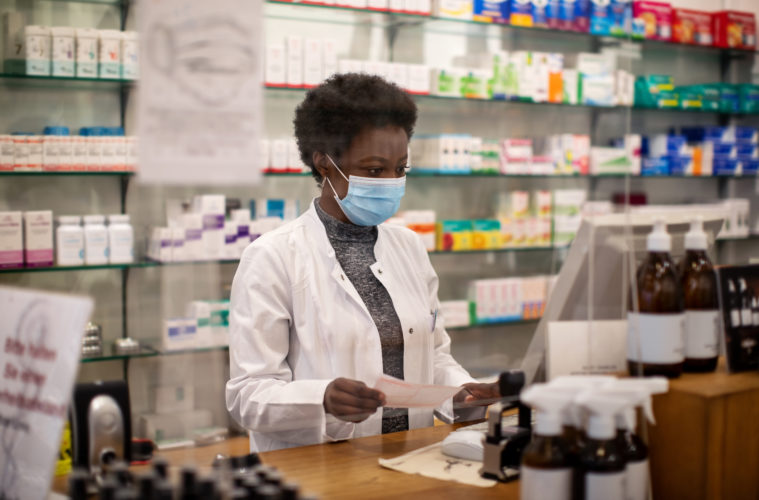Maidenhead, UK (25 September 2020) – COVID-19 has seen UK consumers look to pharmacists to help them navigate the maze of online misinformation, decode digital healthcare solutions and help them make informed decisions about self-care – according to new research from Ipsos MORI commissioned by Johnson & Johnson (J&J) Consumer Health EMEA to mark World Pharmacists Day.
Key findings from the survey of over 6,000 participants aged between 16 and 75 across Europe show on average, 57% of UK consumers are looking to community pharmacists to provide advice about OTC healthcare products, rising to 68% in the 45-54 age bracket. Of those surveyed, 43% would expect community pharmacists to provide advice on how to treat specific everyday health concerns such as coughs and colds, smoking cessation or skin dryness, 43% for guidance about health topics they would normally consult the doctor about, 43% for advice about COVID protection, 32% for access to vaccinations and 27% for access to diagnostics.
“The role of community pharmacy has never been more important” said Carlton Lawson, Area Managing Director for Northern Europe at Johnson & Johnson Consumer Health. “Today’s consumers are seeking informed advice on healthcare topics, and pharmacists play a critical role as front-line health professionals” he added.
COVID-19 has also driven an acceleration toward e-commerce, with 31% of UK consumers now purchasing healthcare products online, rising to 42% in the 25-34 age range. In addition to high online engagement, 29% of UK consumers visited a pharmacy to buy health care products during lockdown. To address the clear shift to e-commerce, Johnson & Johnson is actively supporting pharmacists in the UK to leverage digital engagement to improve the healthcare advice provided to their customers.
“Consumer purchasing habits changed significantly before and during lockdown but not just in terms of online or in-person buying” said Carlos Olmos, VP Customer Development, Johnson & Johnson Consumer Health EMEA. “Pre-lockdown we noted 2-5-fold higher demand for some of our products due to panic-buying, followed by increased purchasing in categories such as hand moisturisers up 15-20% and mouth wash up 5-10% depending on the market throughout lockdown. This increase reflects greater attention paid to oral health in the extended period between dental visits during lockdown and to dry skin linked to frequent handwashing and use of hand sanitisers.”
The survey also identifies the important role for pharmacists to prepare for uncertain levels of consumer demand during the winter. On average, only 25% of UK consumers are very confident that the health care products they have at home are sufficient if they or family members are unwell; only 34% that the products are within expiry dates and only 33% that the products are stored in line with storage instructions.


